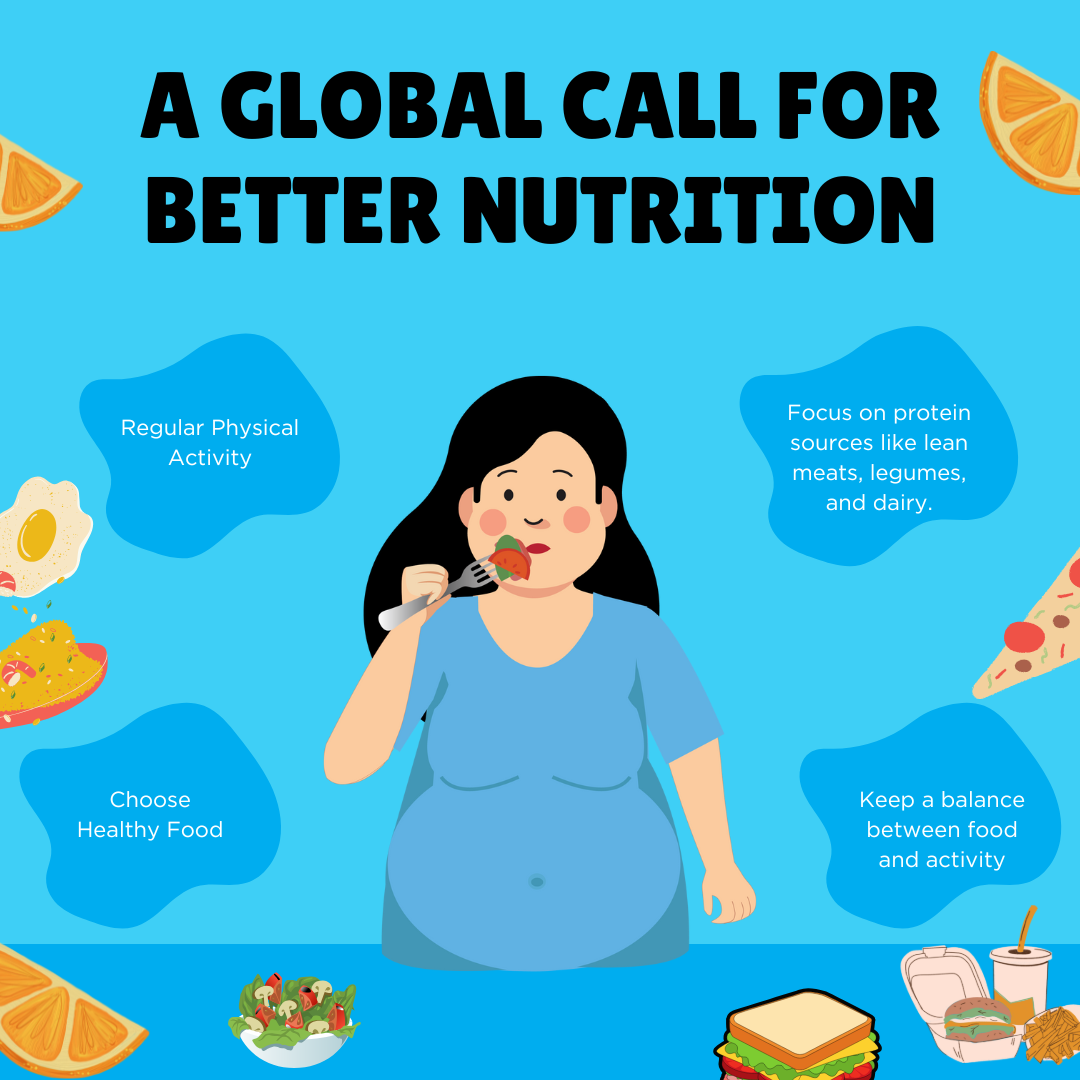Diets and Their Role in Combating Global Health Crises: From Obesity to Malnutrition
Introduction
In today’s world, diet plays a crucial role in global health. From rising obesity rates in developed nations to widespread malnutrition in impoverished regions, food choices significantly impact well-being. The way we eat affects not only our personal health but also the broader healthcare system and economic stability.
As diet-related diseases continue to rise, understanding how nutrition can combat these crises is more important than ever. This article explores the role of diet in addressing obesity, malnutrition, and other pressing health concerns worldwide.
The Global Health Crisis: A Tale of Two Extremes
1. The Obesity Epidemic
Obesity has become a major public health challenge, especially in developed and urbanized nations. Poor diets, high in processed foods, added sugars, and unhealthy fats, contribute to weight gain and various related diseases, including:
🔹 Type 2 Diabetes – Linked to excessive sugar consumption and insulin resistance.
🔹 Cardiovascular Diseases – Caused by high cholesterol and saturated fats.
🔹 Hypertension (High Blood Pressure) – Often a result of excessive salt intake.
🔹 Certain Cancers – Strongly linked to poor diets and excess weight.
Obesity also places a significant economic burden on healthcare systems and reduces overall quality of life.
2. Malnutrition and Its Impact
While obesity dominates some regions, malnutrition remains a severe issue in others. Malnutrition occurs when the body lacks essential nutrients, leading to:
🔹 Stunted Growth & Development – Particularly in children.
🔹 Weakened Immune Systems – Increased vulnerability to infections.
🔹 Cognitive Impairment – Affected brain development in children.
🔹 Increased Mortality Rates – Especially among vulnerable populations.
Countries facing food insecurity, poverty, and lack of access to fresh foods struggle with malnutrition, making it a global crisis.
How Diet Can Help Combat Global Health Issues
1. Whole, Nutrient-Dense Diets for Obesity Prevention
To address obesity, balanced, whole-food-based diets are essential. Some key dietary approaches include:
🥗 Mediterranean Diet – Rich in healthy fats, lean proteins, and fresh vegetables.
🥦 Plant-Based Diet – Focuses on fiber-rich foods like fruits, vegetables, and legumes.
🍣 Japanese Diet – Emphasizes fresh seafood, fermented foods, and minimally processed items.
🥑 Low-Carb & Keto Diets – Reduce refined carbohydrates to manage weight and blood sugar.
These diets promote healthy metabolism, weight management, and disease prevention.
2. Fortified & Sustainable Diets for Malnutrition
To fight malnutrition, ensuring access to nutrient-rich foods is vital. Solutions include:
✔️ Fortified Foods – Adding vitamins and minerals to staple foods like rice and flour.
✔️ Food Security Programs – Improving access to fresh, healthy foods in underserved regions.
✔️ Education on Nutrition – Teaching communities how to make the most of available food.
✔️ Sustainable Farming – Supporting agriculture to provide nutrient-dense crops.
Organizations like the World Health Organization (WHO) and UNICEF focus on these interventions to reduce malnutrition rates worldwide.
The Role of Governments & Public Policies in Diet Regulation
1. Food Labeling & Awareness Campaigns
Many governments are now requiring clear nutritional labeling on food products to help consumers make informed choices. Public awareness campaigns educate people on the dangers of ultra-processed foods and excess sugar consumption.
2. Taxation on Sugary & Processed Foods
Countries such as Mexico and the UK have implemented sugar taxes to reduce the consumption of sodas and junk food. This policy encourages healthier alternatives.
3. School & Workplace Nutrition Programs
Many nations have adopted school meal programs that focus on fresh, whole foods to promote childhood health. Workplaces also encourage healthy eating initiatives to improve employee wellness.
Practical Steps to Improve Your Diet for Better Health
✅ For Weight Management & Obesity Prevention:
🔹 Eat more whole, unprocessed foods like fresh fruits, vegetables, lean proteins, and whole grains.
🔹 Reduce sugar, processed carbs, and unhealthy fats.
🔹 Stay active with regular exercise to complement a healthy diet.
🔹 Practice portion control and mindful eating.
✅ For Nutritional Deficiencies & Malnutrition:
🔹 Consume a varied diet rich in vitamins and minerals.
🔹 Incorporate fortified foods if necessary.
🔹 Focus on protein sources like lean meats, legumes, and dairy.
🔹 Hydrate properly and avoid excessive alcohol or processed drinks.
By making small but effective dietary changes, individuals and communities can combat both obesity and malnutrition, paving the way for a healthier future for all.
Conclusion: A Global Call for Better Nutrition
Diets are powerful tools in addressing some of the world’s most pressing health issues. By adopting healthier eating habits, supporting food accessibility, and educating communities, we can reduce the impact of both obesity and malnutrition.
It’s time to make conscious food choices for a better, healthier world. Whether you’re looking to lose weight, improve digestion, or prevent disease, your diet is the key to long-term well-being.
Are you ready to take the first step toward a healthier lifestyle? Start today!

